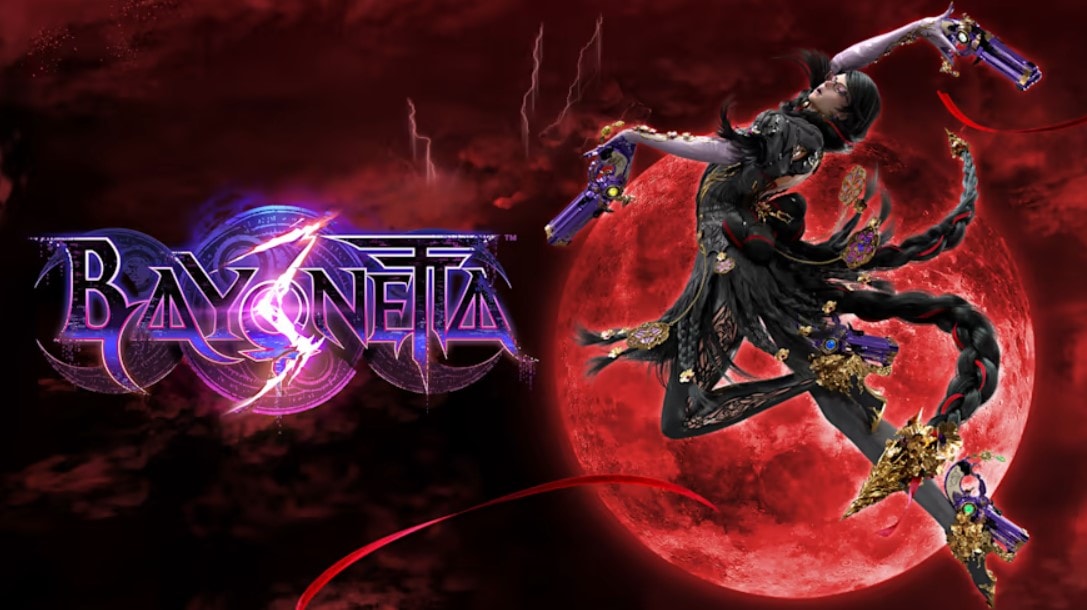
Bayonetta 3 is bringing out people’s biphobia in a big way
This piece contains spoilers for Bayonetta 3. It has also been edited in the first paragraph for clarity in attribution.
When the review embargo for Bayonetta 3 lifted on Tuesday, it was almost immediately followed by vocal disappointment by some reviewers that the game seems to undercut the titular witch’s queer sexuality by having her in a romance with a man. Delving into deeper conversations about this at the time was difficult, as Nintendo’s embargo agreement for Bayonetta 3 was extensive in what reviewers could and could not discuss, which included several of Viola’s chapters, and of course, the ending.
Now that the game is out and those restrictions are up we can finally get into that ending, and why reactions claiming that it has made Bayonetta straight or invalidates her past queer identity are simply biphobic, whether they intend to be or not.
Bayonetta 3 is essentially this series’ Multiverse of Madness; the titular witch and a new character named Viola jump between multiple alternate dimensions as they try to gather the MacGuffins they need to save the world and save Luka from his strange, new feral stained glass wolf condition. Bayonetta does the item gathering while Viola chases after Luka. In these latter sequences, it quickly becomes apparent that Viola and Luka know each other. As the game goes on, we’re directly told the two are related by blood, and it’s implied that since Luka isn’t her brother, he’s likely her father. Considering that Viola is a witch capable of summoning demons and assuming a fairy form very similar to Bayonetta’s Madame Butterfly state, it’s not really a stretch then to connect the dots that the witch is Viola’s mother. Beyond that, the version of Luka that reveals he and Viola are related calls himself “Adam” and Luka “Arch Adam”, which would obviously correspond to Bayonetta’s “Eve Origin” designation from Singularity.
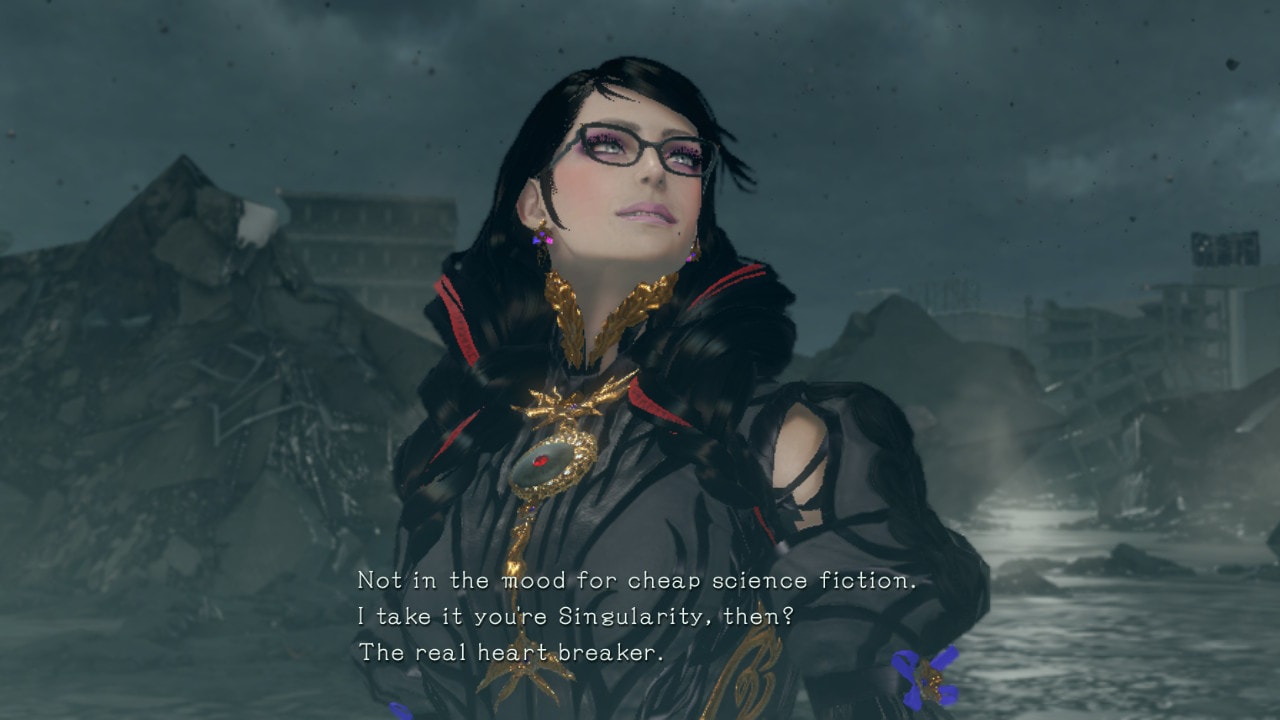
In short, the game’s “plot twist” is sign-posted and hinted at heavily from about the mid-point on. All of this is textually confirmed during the final encounter with Singularity. Luka sacrifices himself to allow Bayonetta and Viola to return to their world and stop the villain from destroying it once and for all. He later appears during this confrontation to help Bayonetta fight Singularity using his wolf form. In the final portion of the fight, Singularity lashes out one last time and Luka is forced to choose between saving Viola and Bayonetta. He chooses his daughter, and Bayonetta is seemingly killed by her own summoned demon. With Viola safe, Luka cradles Bayonetta in his arms for a very corny romance scene before the two of them are seemingly sucked into the underworld as recompense for Bayo’s broken contract with Inferno. This seems to be a sticking point for some critics.
“In any case, the Bayonetta I know and love doesn’t tie herself down to a man, and she certainly wouldn’t need to be rescued by one,” Maddy Myers wrote in the Polygon review.
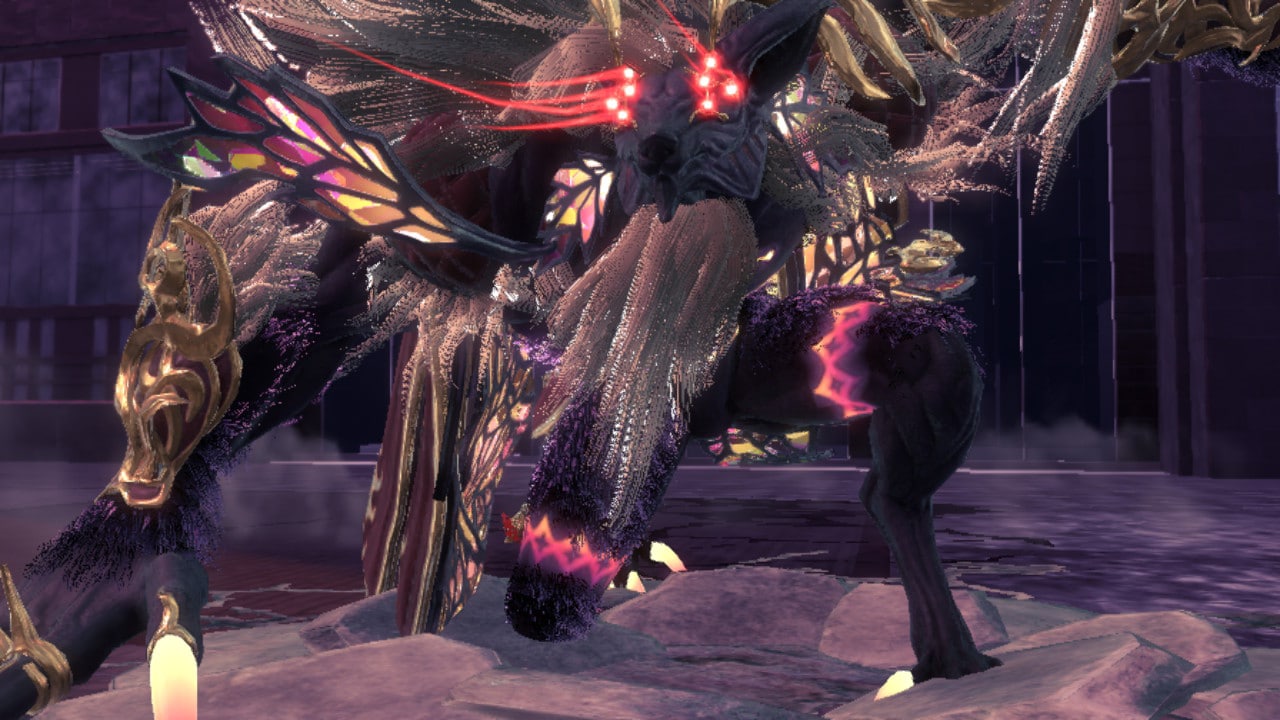
The implications that Bayonetta is “tied” to Luka irrevocably because of this scene, and that he “rescued” her in the final confrontation are both incorrect. It’s true that the pair seem to die together, or at least go to Inferno as a pair, but as we’ve seen time and time again in this series, death is never the end and the divine realms aren’t necessarily great at keeping Bayonetta dead or locked up. As always with this series, we really don’t know where it will be going next, as evidenced by the post-credits content that extends the story.
Luka also explicitly doesn’t save Bayonetta in the final confrontation. He fights beside her, but when it comes down to it, he chooses to save their daughter instead. Luka’s entrance to this encounter is him ziplining directly into a wall, perfectly embodying the “lovely fool” moniker Bayonetta gave him. Even in his wolf form, he’s not powerful enough to stop Singularity, not powerful enough to save both his child and her mother. So he saves his child and then chooses to be taken alongside Bayonetta, rather than lingering as a typical video game sad dad.
The thing is though, I shouldn’t have to defend Luka as a man or a character for his relationship with Bayonetta to remain valid in terms of her sexuality and freedom. It’s true that Jeanne and Bayonetta have always had chemistry throughout this series — which I would argue is true in this installment as well, especially during certain chapters in alternate dimensions — and that there’s canon art and tweets from Hideki Kamiya that indicate the witches were a couple at some point. But that doesn’t mean that they would necessarily be together romantically forever, especially as people with lives that have spanned centuries at this point.
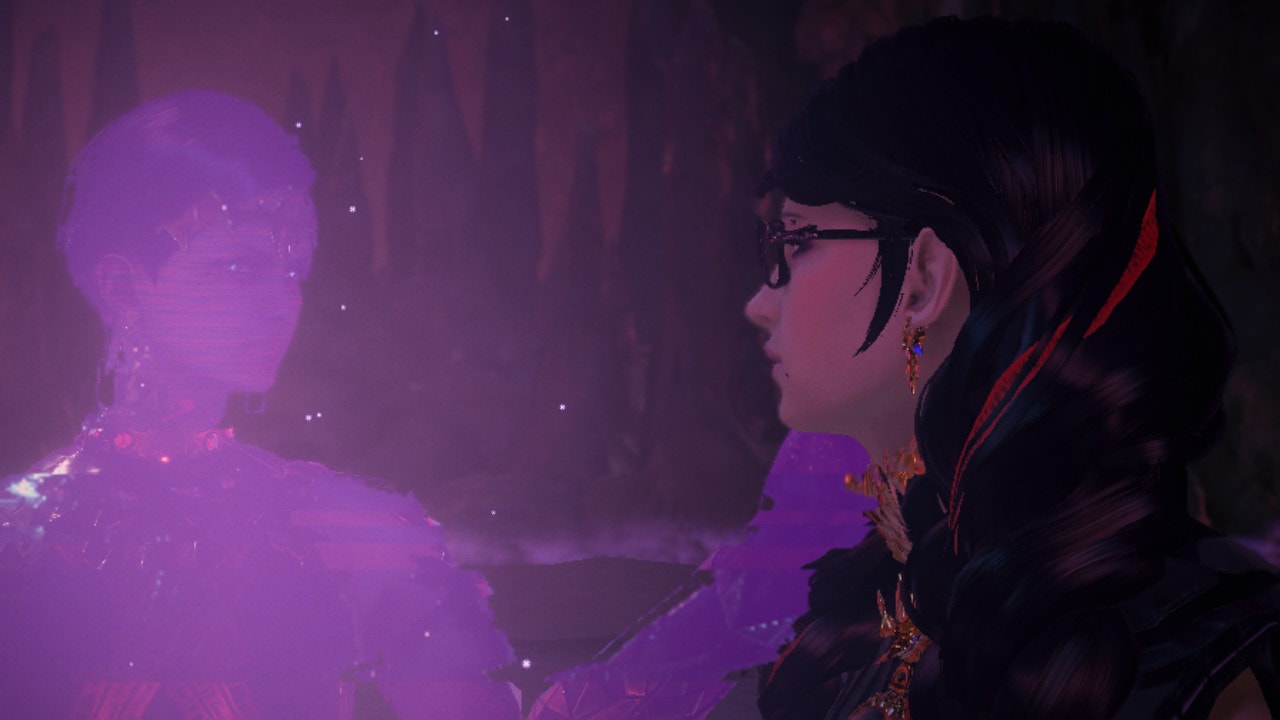
But more than that, Bayonetta having a child with Luka, groan-worthy or annoying as it may feel, doesn’t erase her past with Jeanne. In the same way that bisexual or pansexual people who have never been with someone of their same gender are still allowed to identify that way if it feels right, being with someone of a different gender doesn’t immediately wipe past queer relationships from someone’s experience or identity. It may be frustrating to see a mainstream queer character that’s become an absolute icon in gaming have what’s perceived as a heteronormative relationship, but that doesn’t make it any less biphobic of a reaction. There are bisexual, pansexual, and other queer/fluid people that engage in those kinds of relationships every single day.
It also screams of an outdated form of feminism that demands all “powerful” women be perpetually single and free-wheeling, unless they choose to settle down with women. Personally, I don’t subscribe to the notion that Bayonetta and Luka ended this game in an eternal bond of holy matrimony. The scene, instead, read to me as two parents who were separated but still had feelings for each other being reunited. Luka doesn’t appear in the game until way after shit has hit the fan, after all. Jeanne also isn’t with Bayonetta at the start, but shows up shortly after the disaster to help. It very much seems like Bayo is living on her own, enjoying torturing Enzo as usual, when Singularity first attacks.
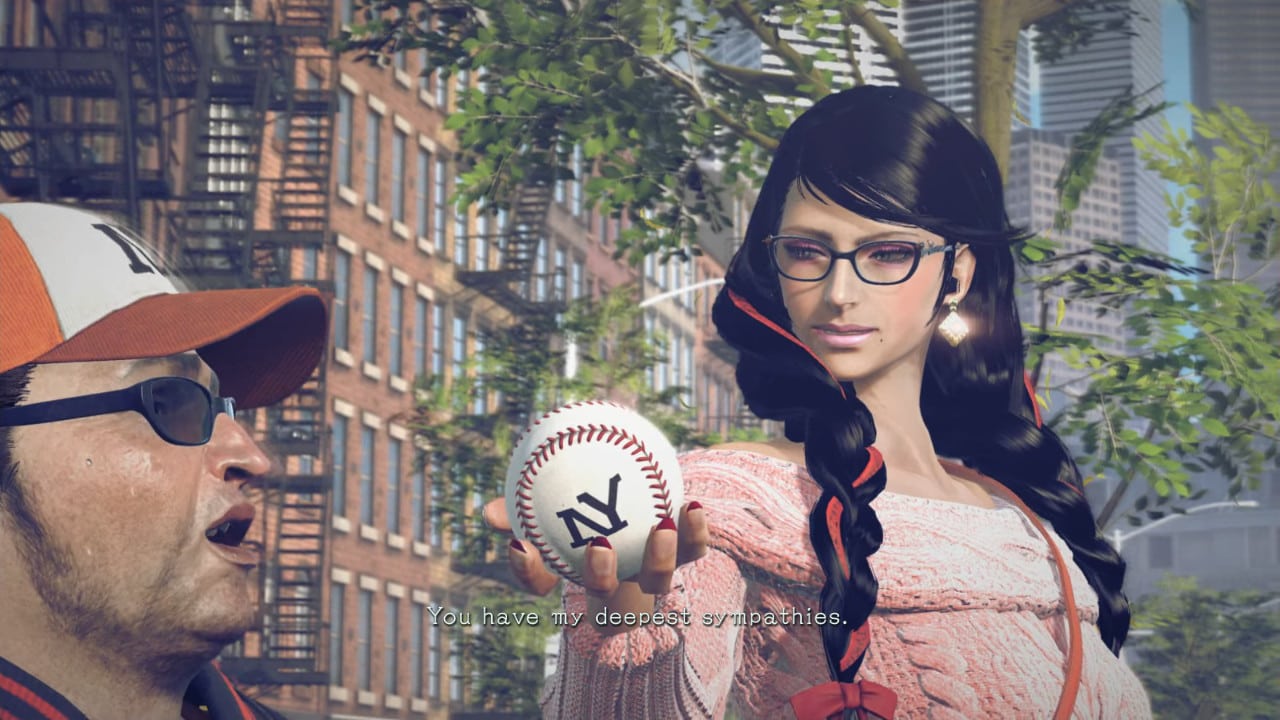
But even if we’re meant to believe that our Umbra witch has been with Luka for a long time and that they’ll be together forever, that doesn’t make her any less free or any less queer. If Bayonetta chose to be with Luka and have a child, that’s her prerogative. It’s also absolutely a trite story choice, but acting as though queer women can lose access to that identity by choosing to have children and/or be with men actively erases the lived experiences of many, many women, both cisgender and trans.
The urge to rail against cishet men and the privilege they often use against us as queer people is valid and understandable to a degree, but by allowing it to give us tunnel vision about who can or cannot be queer based on their proximity to men, we automatically erase people within our own communities, including transgender and bisexual or pansexual men who may be part of these “straight passing” relationships. While there is plenty to hold cishet men accountable for, both in reality and fiction, we should not treat their presence in a queer person’s life as a plague that scalds their identity away.





